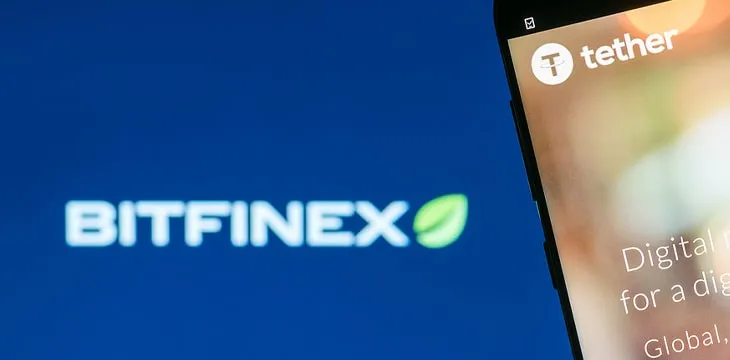|
Getting your Trinity Audio player ready...
|
Coming off a week in which Tether founder Brock Pierce announced his candidacy for President of the United States, a New York appellate court has given the greenlight to the New York Attorney General’s ongoing investigation of the tightly knit iFinex companies (including Bitfinex and hereafter referred to as Bitfinex) and Tether.
The ruling is the affirmation of a decision in June allowing the NY Attorney General to proceed with its Martin Act investigation of Bitfinex and Tether. The Martin Act is one of New York’s notorious anti-fraud statutes, and it empowers the Attorney General to conduct investigations into and prosecute incidences of securities fraud.
Attorney General Letitia James had secured a court order barring Bitfinex from taking any more money from Tether and requiring both Bitfinex and Tether to turn over documents relevant to the investigation—specifically documents which James contends would show a massive misappropriation of customer and corporate funds between Bitfinex and Tether.
Under this latest ruling, Bitfinex and Tether must now comply with those orders.
Investigation
While the Attorney General has yet to bring a formal suit against Bitfinex and Tether, the order was sought under the broad investigatory powers of the Martin Act as a part of James’ office’s investigation of the Bitfinex, Tether and their associated entities.
The investigation was announced in April 2019 by the publication of a court order obtained by the Attorney General’s office, which accuses Bitfinex of surreptitiously using Tether’s reserves to mitigate a $850 million loss, allegedly due to the use of a Panamanian company called Crypto Capital to hold and process its funds. Bitfinex was forced to use the company after failing to find a partner in traditional banks.
The $850 million was being held by Crypto Capital, but Bitfinex and Tether claim that the funds are tied up in a series of freezes enforced by multiple foreign governments on Crypto Capital’s bank accounts. In 2019, the CEO of Crypto Capital was indicted in New York on fraud charges, while the company president was extradited to Poland on money laundering and drug charges.
The Attorney General also slammed Bitfinex of representing to the market that Tether was fully backed by U.S. dollars on a 1:1 basis, while knowing that it had in effect adopted Bitfinex’s almost-billion dollar risk in relation to the money sent to Crypto Capital.
According to a press release from the Attorney General’s office:
“Our investigation has determined that the operators of the ‘Bitfinex’ trading platform, who also control the ‘tether’ virtual currency, have engaged in a cover-up to hide the apparent loss of $850 million dollars of co-mingled client and corporate funds.”
“New York state has led the way in requiring virtual currency businesses to operate according to the law. And we will continue to stand-up for investors and seek justice on their behalf when misled or cheated by any of these companies.”
According to the Attorney General’s office, Bitfinex used Tether as a ‘corporate slush fund’ in order to fill the gap left by the Panamanian loss.
Legal argument, next steps
In appealing the court order, Bitfinex attempted to argue that:
- The Court had no jurisdiction to grant the order because Tether is not a security or a commodity under the Martin Act.
- The Court had no jurisdiction to grant the order against it because it is not based in New York and does not serve New York customers.
In rejecting the appeal, the Court made the general point that under the Martin Act, the Court’s involvement in the statutory investigation phase is limited, and the attempts to ‘dismiss’ the Attorney General’s motion are misguided: under the Martin Act’s statutory scheme, the Court’s role is to grant, vacate or modify orders under the Act, and beyond those capabilities the Court’s role in a pre-lawsuit investigation is limited.
Nonetheless, the Court rejected the argument that Tether is not a security or commodity, pointing to the Martin Act’s comparatively wide definition of those terms. It rejected the second argument on the basis that the Attorney General is requesting documents from as far back as 2015, while Bitfinex allowed trading by New York citizens until January 2017.
The ruling has immediate effects: iFinex now owes the Attorney General the requested documents and the $900 million line of credit between Bitfinex and Tether has been frozen. While it is important to stress that there have been no formal charges or accusations brought by the Attorney General’s office, the now-effective order is a big step in the ongoing investigation of Bitfinex, Tether and their associated companies.
If the documents line up with the Attorney General’s expectations, then we should see more indications that Bitfinex and Tether conspired to cover up an enormous loss of capital on the part of Bitfinex and in doing so misled and defrauded its clientele.

 06-30-2025
06-30-2025 





